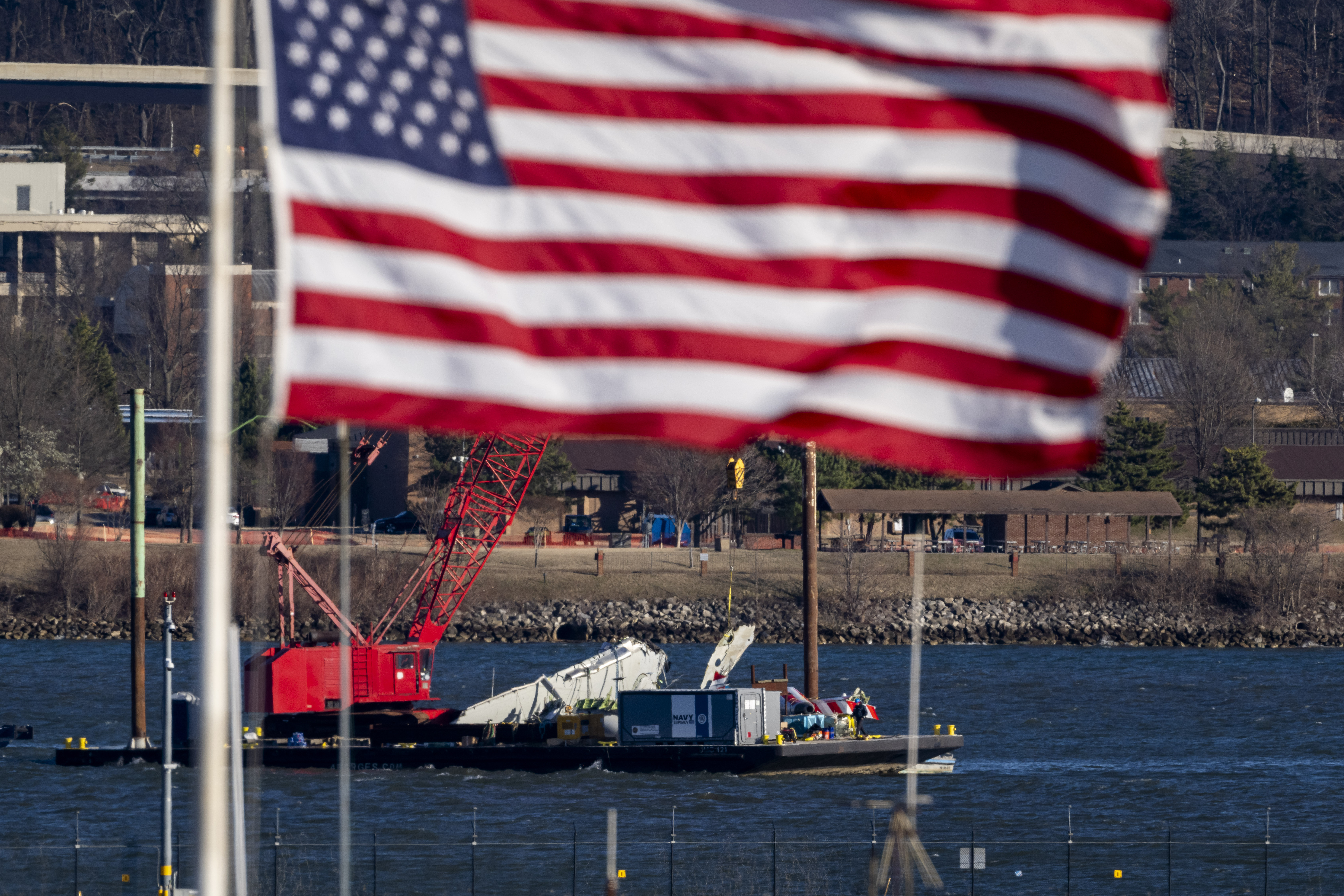WASHINGTON (WAVY) — The latest version of the defense department budget has hundreds of millions of dollars for local projects, a nearly 4% raise for personnel and more than $8 billion for U.S. shipbuilding for fiscal year 2026.
According to the office of Sen. Tim Kaine (D-Va.), a member of the Senate Armed Services Committee and ranking member of the Subcommittee on Seapower, major projects at local bases total more than $700 million. Military personnel would get a 3.8% pay raise.
“This defense authorizing bill does very well by Virginia priorities – ships, subs, military construction,” Kaine said Friday afternoon in a conference call with reporters.
Some of the local highlights on the list of construction projects provided for so far include:
- $380 million for Public-Private Venture unaccompanied housing at Naval Station Norfolk
- $188 million for Dry Dock 3 modernization at Norfolk Naval Shipyard
- $93.3 million for Electric Distribution System upgrades at Naval Station Norfolk
- $71.7 million for weapons magazines at Naval Weapons Station Yorktown
- $49 million for fuel system maintenance dock at Joint Base Langley-Eustis
- $20.4 million for MQ-25 facilities at Naval Station Norfolk
- $12.36 million for a Child Development Center at Joint Expeditionary Base Little Creek-Fort Story
- $11.7 million for a Child Development Center at Naval Station Norfolk
- $3.2 million for the planning and design of a new headquarters for the 192nd Wing at Langley Air Force Base
Kaine said $8.5 billion is budgeted for shipbuilding, although it’s unclear how much of that figure would go to Newport News Shipbuilding. He said the armed forces must evolve to counter adversaries on the other side of the pacific.
“Having ships and subs that can move across oceans is very, very important.”
In bipartisanship that’s rare these days, Kaine sees common ground with the White House when it comes to defense dollars.
“I do appreciate the priority that the Trump administration is paying to this,” he said. “On the ship and sub-building side, they view this as very important.”
Kaine said he hopes to get the bill to the full Senate before the August recess.
Here’s the news release from Sen. Tim Kaine announcing the passage of the defense bill:
KAINE APPLAUDS COMMITTEE PASSAGE OF FISCAL YEAR 2026 NATIONAL DEFENSE BILL
Today, U.S. Senator Tim Kaine (D-VA), a member of the Senate Armed Services Committee (SASC) and Ranking Member of the SASC Subcommittee on Seapower, applauded committee passage of the Fiscal Year 2026 National Defense Authorization Act (NDAA), which includes key provisions Kaine secured to advance U.S. national security, support servicemembers and their families, boost Virginia’s defense industry, and strengthen relations with allies and partners:
“I’m proud to have worked with my colleagues on the Senate Armed Services Committee to pass out of committee this year’s defense authorization bill. The bill includes several provisions I secured to strengthen our national security, support Virginia’s military installations and defense community, invest in our nation’s shipbuilding programs, and most importantly, improve quality of life among servicemembers and their families. I’m especially glad the bill includes a provision I pushed for to require Defense Department aircraft that operate near commercial airports to have broadcast positioning technology following the deadly collision between an Army Black Hawk helicopter and a regional commercial jet that took 67 lives in January. I urge the full Senate to take it up as soon as possible.”
Kaine successfully secured the following provisions:
Pay Raises, Allowances, and Workforce Recruitment:
- Authorizes a 3.8 percent pay raise for military personnel.
- Directs the Secretary of Defense to ensure that pay statements for military servicemembers include clear descriptions for each type of pay, allowance, and deduction.
- Directs the Secretary of Defense to assess how current salaries of Department of Defense civilian employees are calculated under the locality pay system.
- Provides the Secretary of Defense with direct hiring authority for up to 60 graduates of the Defense Civilian Training Corps (DCTC) every calendar year and requires a report to Congress on the use of this hiring authority. The DCTC is a pilot program that recruits and trains college students for careers as Department of Defense civilians.
Shipbuilding Investments:
- Authorizes investments and procurement of naval ships, including Columbia-class submarines and Medium Landing Ships.
- Directs the Secretary of the Navy to provide a report to Congress on the Navy’s progress since 2015 in implementing the 90 recommendations made by the Government Accountability Office (GAO) to improve naval shipbuilding.
- Requires the Secretary of the Navy to expedite the investigation, qualification, and integration of 23 advanced technologies and processes into Navy surface ship maintenance to improve readiness, reduce costs, and address delays.
- Directs the Secretary of the Navy to provide a report to Congress on the status of the recommendations made by the GAO to ensure the Marine Corps has a fleet of 31 operational ships.
- Requires the Secretary of the Navy to move leadership for surface ship maintenance at private shipyards to Type Commanders and directs a new contracting strategy that emphasizes workforce stability and collaborative planning.
Aviation Safety: Requires that all aircraft of the Department of Defense that operate near commercial airports be equipped with broadcast positioning technology. Requires that the Department of Defense improve how it shares aviation safety data with the Federal Aviation Administration. This comes in response to the January 29, 2025 collision between an Army Black Hawk helicopter and American Airlines flight 5342 near Ronald Reagan Washington National Airport (DCA) that took the lives of 67 people.
Army Futures Command and Training and Doctrine Command: Requires a report on the Army’s proposed plan to integrate Army Futures Command and Training and Doctrine Command.
Military Construction: Authorizes $993,660,000 for military construction (MILCON) in Virginia.
- $380,000,000 for Public-Private Venture (PPV) unaccompanied housing at Naval Station Norfolk
- $188,000,000 for Dry Dock 3 modernization at Norfolk Naval Shipyard
- $93,300,000 for Electric Distribution System upgrades at Naval Station Norfolk
- $85,000,000 for operations center at the Pentagon
- $71,700,000 for weapons magazines at Naval Weapons Station Yorktown
- $63,500,000 for a Water Treatment Plant at Marine Corps Base Quantico
- $49,000,000 for fuel system maintenance dock at Joint Base Langley-Eustis
- $20,400,000 for MQ-25 facilities at Naval Station Norfolk
- $15,500,000 for an Aircraft Maintenance Hangar at Virginia Army National Guard’s Army Aviation Support Facility in Sandston
- $12,360,000 for a Child Development Center at Joint Expeditionary Base Little Creek-Fort Story
- $11,700,000 for a Child Development Center at Naval Station Norfolk
- $3,200,000 for the planning and design of a new headquarters for the 192nd Wing at Langley Air Force Base
Military Housing:
- Authorizes increased funding to construct, repair, and improve enlisted barracks across the services.
- Requires the Secretary of Defense to publish a clear, accessible document that explains how Basic Allowance for Housing (BAH) rates are determined.
- Requires the Secretary of Defense to develop an alternative methodology for calculating BAH based on the typical cost of housing units by number of bedrooms, conduct a pilot program using the new methodology, and brief Congress on the findings.
- Requires the Secretary of Defense to include additional oversight mechanisms for any renegotiation of the contract under the Global Household Goods Contract or negotiation of a new contract under the Global Household Goods Contract of any successor program or contract.
Health Care:
- Directs the Comptroller General of the United States to conduct a study on the impact of behavioral and mental health staffing shortfalls at military treatment facilities.
- Requires a briefing on the Department of Defense’s implementation of the self-initiated referral process for mental health care.
- Requires the establishment of a demonstration program to expand partnerships between the Department of Defense and Department of Veterans Affairs medical facilities for the purpose of increasing case volume for graduate medical education programs.
- Requires Department of Defense to review its policies for credentialing health care workers to remove barriers to accessing mental health care.
- Requires the Department of Defense to better define its criteria for reimbursing children’s hospitals.
Military Families:
- Requires the Secretary of Defense to improve staffing of special education teachers and staff and improve special education offerings at Department of Defense Education Activity (DODEA) schools.
- Requires an update to existing DODEA regulations on the student use of portable electronic mobile devices in DODEA schools to prohibit disruption in the learning environment.
- Authorizes funding for Impact Aid, including funding to support military children with severe disabilities. Impact Aid reimburses school districts for the cost of educating children who reside on military installations or have a parent that works on a military installation or federal property. Because military families may not pay certain state or local taxes where they are stationed, Impact Aid helps offset these costs to support schools.
European Security, NATO, and Ukraine:
- Prohibits a reduction in U.S. military posture in Europe or relinquishment of U.S. command of the Supreme Allied Commander Europe position until the Secretary of Defense assesses the impact on U.S. and NATO and certifies to Congress that such action is in the national interest.
- Authorizes funding for the NATO Security Investment Program.
- Extends and authorizes funding for the Ukraine Security Assistance Initiative.
- Requires the Secretary of Defense to deliver a report on acceleration options for the JUMPSTART initiative, which allows European partners to purchase weapons for Ukraine from U.S. defense companies.
- Requires the Secretary of Defense to work with Ukraine to create a depot-level maintenance plan to ensure that western-transferred military equipment can be sustained and provide the plan to Congress.
- Requires the Secretary of Defense to continue to provide intelligence support, including information, intelligence, and imagery collection to the Government of Ukraine.
Australia-U.K-U.S. (AUKUS) Partnership: Directs further collaboration between the AUKUS countries on IT infrastructure and directs the DoD to provide an update on who it has assigned to be the senior civilian defense official to lead the U.S. work on this agreement and continue the updates required by the Fiscal Year 2024 NDAA.
Taiwan: Authorizes funding for the Taiwan Security Cooperation Initiative and directs the Department of Defense to engage with Taiwan to develop a joint program to codevelop and coproduce uncrewed and counter-uncrewed capabilities.
U.S. Posture in Indo-Pacific:
- Authorizes funding for the Pacific Deterrence Initiative (PDI), which enhances U.S. force posture, infrastructure, readiness, capacity, and capabilities in the Indo-Pacific.
- Prohibits a reduction in U.S. military posture on the Korean Peninsula or a change in wartime operational control over the Combined Forces Command until the Secretary of Defense certifies to Congress that such action is in the national interest.
- Directs an initiative to strengthen security cooperation across the respective defense industrial bases of U.S. allies and partners in the Indo-Pacific.
Uncrewed Aircraft Systems:
- Requires the Department of Defense to develop a roadmap for the small, unmanned aircraft system (sUAS) industrial base to support existing sUAS programs.
- Requires a briefing on the plan for installation commanders to engage UAS on U.S. military installations by both kinetic and non-kinetic means.






